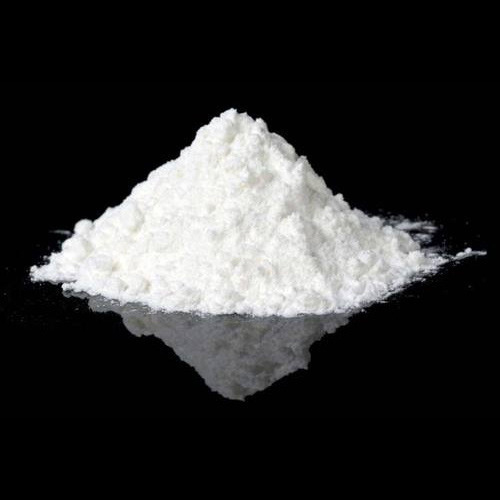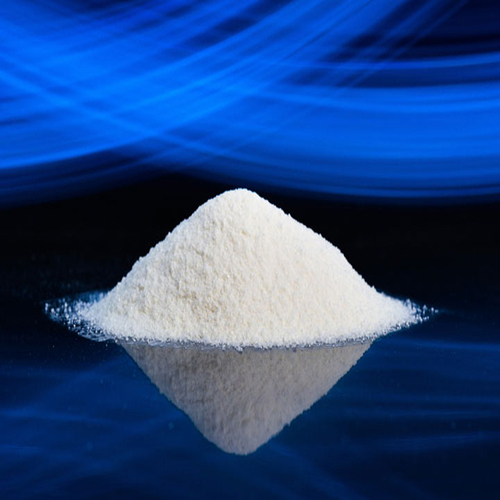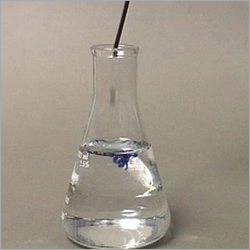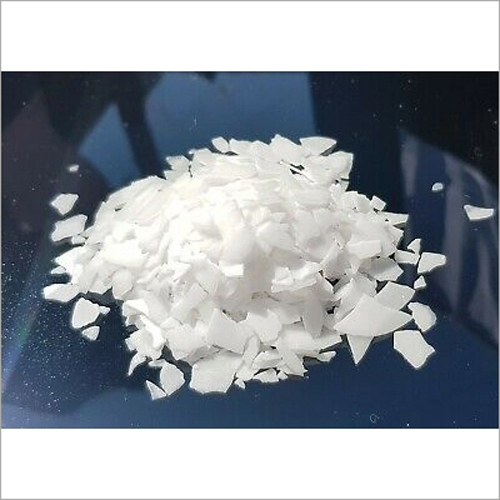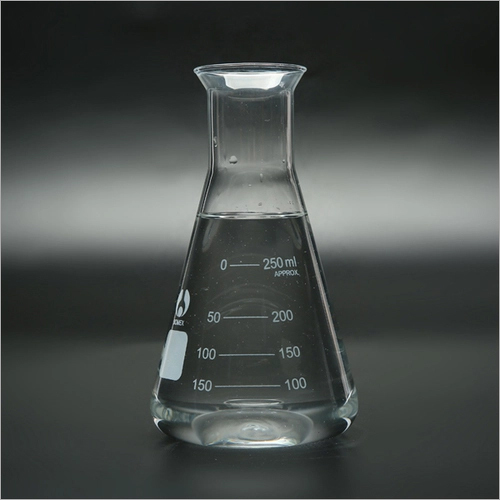
Hydrogen Peroxide
Product Details:
- Appearance Very light blue liquid
- Molecular Weight 34.0147 Grams (g)
- Product Type Peroxide
- Storage Room Temperature
- Melting Point 0.43 C
- Solubility Soluble in ether, alcohol. Insoluble in petroleum ether
- CAS No 7722-84-1
- Click to View more
X
Hydrogen Peroxide Price and Quantity
- 20 Ton
Hydrogen Peroxide Specifications
- Very light blue liquid
- Peroxide
- Room Temperature
- 34.0147 Grams (g)
- 7722-84-1
- Liquid
- 1.11 Gram per cubic meter (g/m3)
- 0.43 C
- Soluble in ether, alcohol. Insoluble in petroleum ether
- 1.4061
- H2O2
- Industrial
Hydrogen Peroxide Trade Information
- 7 Days
Product Description
Owing to our expertise in this domain, we are indulged in offering Hydrogen Peroxide, which can be used on the skin to prevent infection of minor cuts, scrapes, and burns. Customers can avail this chemical in diverse quantities as per their requirements. The offered product can also be utilized in cleaning, and in personal care products such as hair dye.
Hydrogen Peroxide Properties:
1. Chemical Formula: H2O2
2. Molecular Weight: 34.0147 g/mol
3. Physical State: Hydrogen peroxide is typically a pale blue liquid at room temperature and atmospheric pressure. However, it can decompose into water and oxygen gas over time, particularly when exposed to light or heat.
4. Solubility: Hydrogen peroxide is highly soluble in water. It forms an aqueous solution, and its concentration is often expressed as a percentage (%). Common concentrations include 3% (household hydrogen peroxide), 6%, 10%, 30%, and higher concentrations for industrial use.
Uses of Hydrogen Peroxide:
1. Oxidizing Agent: Hydrogen peroxide is a powerful oxidizing agent, which means it readily donates oxygen atoms in chemical reactions. It can react with various substances, leading to oxidation reactions. This property makes it useful for bleaching, disinfecting, and sterilizing.
2. Decomposition: Hydrogen peroxide is unstable and tends to decompose into water and oxygen gas. This process is accelerated by heat, light, or the presence of certain substances called catalysts (e.g., transition metal ions like iron or manganese). The decomposition reaction is exothermic and can lead to the release of heat.
3. Bleaching Agent: Hydrogen peroxide is commonly used as a bleaching agent for hair, textiles, paper, and other materials. It breaks down pigments and color compounds through oxidation, resulting in a bleached appearance.
4. Disinfectant and Antiseptic: Due to its strong oxidizing properties, hydrogen peroxide is used as a disinfectant and antiseptic. It can kill bacteria, viruses, and fungi by damaging their cell walls and structures.
5. Rocket Propellant: Hydrogen peroxide can be used as a rocket propellant in certain applications. When it decomposes, it releases oxygen gas and steam, which can be used to generate thrust in propulsion systems.
6. Health and Medical Uses: Hydrogen peroxide is sometimes used in medical settings for wound cleaning and as an antiseptic. However, it should be used with caution, as high concentrations can damage tissues and delay wound healing.
7. Environmental Impact: Hydrogen peroxide readily breaks down into water and oxygen, making it a relatively environmentally friendly oxidizing agent compared to some other chemicals. However, its production can have negative environmental impacts if not properly managed.
Applications of Hydrogen Peroxide:
1. Disinfection and Sterilization: Hydrogen peroxide is used to disinfect surfaces, medical equipment, and water. Its oxidizing properties help kill bacteria, viruses, and other pathogens, making it valuable in healthcare, food processing, and water treatment.
2. Bleaching: Hydrogen peroxide is a powerful bleaching agent used in industries such as textiles, paper, and cosmetics. It's used to whiten fabrics, paper pulp, and hair by breaking down pigments through oxidation.
3. Hair and Teeth Whitening: In the beauty industry, hydrogen peroxide is used as a hair bleach and teeth whitening agent. It lightens hair color and removes stains from teeth.
4. Wound Care: Diluted hydrogen peroxide is used for cleaning and disinfecting wounds to prevent infection. It helps to remove debris and kill harmful microorganisms.
5. Oxidation Reactions: Hydrogen peroxide is used as an oxidizing agent in various chemical reactions. It's employed in the production of chemicals, such as phenol, propylene oxide, and peracetic acid.
6. Rocket Propulsion: Concentrated hydrogen peroxide is used as a monopropellant in rocket engines. It decomposes into steam and oxygen gas, generating thrust.
7. Aquaculture: Hydrogen peroxide is used in fish farming to treat water and control disease outbreaks. It can help control parasites and improve water quality.
8. Agriculture: Hydrogen peroxide can be used in agriculture for disinfecting irrigation water, treating fungal infections in plants, and promoting seed germination.
9. Environmental Remediation: It is used in soil and groundwater remediation to break down pollutants through oxidation. It can help clean up contaminated sites.
10. Food Processing: Hydrogen peroxide is used to disinfect food packaging materials, equipment, and surfaces in the food industry to ensure food safety and extend shelf life.
11. Pulp and Paper Industry: It is used to bleach pulp for paper production, improving the quality and appearance of paper products.
12. Textile Industry: Hydrogen peroxide is used to bleach and prepare textiles for dyeing and printing processes.
13. Cosmetics and Personal Care: Apart from hair and teeth whitening, hydrogen peroxide is used in cosmetics for its antimicrobial and antiseptic properties.
14. Laboratory Use: It's used as a cleaning agent for laboratory equipment, as well as for decontaminating surfaces in cleanrooms.
15. Water Treatment: Hydrogen peroxide is used to treat water in various industries, including municipal water treatment, to remove organic and inorganic contaminants.
FAQ:
Q. What is hydrogen peroxide?
Ans: Hydrogen peroxide (H2O2) is a chemical compound composed of two hydrogen atoms and two oxygen atoms. It is a pale blue liquid with powerful oxidizing and disinfecting properties.
Q. How is hydrogen peroxide produced?
Ans: Hydrogen peroxide is typically produced through the anthraquinone process, which involves the oxidation of hydrogenated anthraquinone with air in the presence of a catalyst. Other methods include electrolysis and autoxidation.
Q. Is hydrogen peroxide safe to use?
Ans: Hydrogen peroxide is generally safe to use in appropriate concentrations and applications. However, it can be hazardous at high concentrations and may cause skin and eye irritation. Always follow safety guidelines and precautions.
Q. What concentrations of hydrogen peroxide are commonly available?
Ans: Hydrogen peroxide is available in various concentrations, including 3% (household), 6%, 10%, 30%, and higher concentrations for industrial use.
Q. What is hydrogen peroxide used for?
Ans: Hydrogen peroxide has numerous applications, including disinfection, sterilization, bleaching, hair and teeth whitening, wound care, oxidation reactions, rocket propulsion, aquaculture, and more.
Q. How does hydrogen peroxide disinfect?
Ans: Hydrogen peroxide disinfects by releasing oxygen free radicals that damage the cell walls and structures of microorganisms, including bacteria, viruses, and fungi.
Q. Can hydrogen peroxide be used for wound cleaning?
Ans: Yes, diluted hydrogen peroxide (usually 3% concentration) can be used for cleaning minor wounds to help prevent infection. It should be used sparingly and not on deep or puncture wounds.
Q. Can hydrogen peroxide be used for hair bleaching?
Ans: Yes, hydrogen peroxide is commonly used as a hair bleaching agent. It breaks down the pigments in hair, resulting in a lighter color.
Q. Is hydrogen peroxide used in rocket engines?
Ans: Concentrated hydrogen peroxide is used as a monopropellant in certain rocket engines. It decomposes into water and oxygen gas, generating thrust.
Q. Is hydrogen peroxide environmentally friendly?
Ans: Hydrogen peroxide is relatively environmentally friendly because it decomposes into water and oxygen. However, its production and use should still be managed carefully to minimize environmental impact.
Q. Can hydrogen peroxide be ingested or swallowed?
Ans: Ingesting hydrogen peroxide can be harmful and even toxic, especially in high concentrations. It should not be ingested or swallowed.
Q. Can hydrogen peroxide be used to clean surfaces?
Ans: Yes, hydrogen peroxide can be used to clean and disinfect surfaces. It's effective against various pathogens and can help maintain a clean environment.
Q. Does hydrogen peroxide expire?
Ans: Hydrogen peroxide can degrade over time, especially when exposed to light and heat. It may become less effective as it breaks down. Always check the expiration date on the container.
Q. Can hydrogen peroxide be mixed with other chemicals?
Ans: Mixing hydrogen peroxide with certain chemicals can lead to hazardous reactions. Always follow recommended guidelines and avoid mixing unless instructed by professionals.
Q. Is hydrogen peroxide flammable?
Ans: Concentrated hydrogen peroxide can be flammable and should be handled with care. It can decompose exothermically, leading to potential fire hazards.
Enter Buying Requirement Details
Other Products in 'Industrial Chemical' category
 |
Chemtrade International Corporation
All Rights Reserved.(Terms of Use) Developed and Managed by Infocom Network Private Limited. |
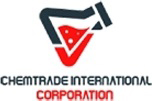
 English
English Spanish
Spanish French
French German
German Italian
Italian Chinese (Simplified)
Chinese (Simplified) Japanese
Japanese Korean
Korean Arabic
Arabic Portuguese
Portuguese